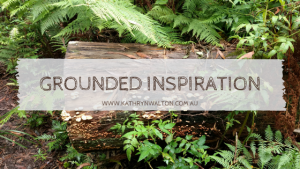
Do you know what drives me to do the work I do with groups of women and health professionals? It’s the fact that there are so many things I wish I’d known when I was younger – things that could have made a difference to my life and to my happiness if I’d known about them, made sense of them, and felt confident implementing them in my own life.
Being stuck in anxiety, sadness or anger stops many people from living truly satisfying and fulfilling lives. With many years of working in the mental health industry as well my own personal experiences, I feel an unstoppable drive to keep moving forwards, to keep expanding my reach to build up people’s knowledge and skills, to make a difference in the world with as many people as I can. My mission is to share information and inspiration that empowers women towards a genuine and deep sense of wellness. And by doing this the ripple effect will have an even greater impact.

Today I’m sharing with you 3 things I wish I’d known when I was younger.
1. Exercise is the only magic pill
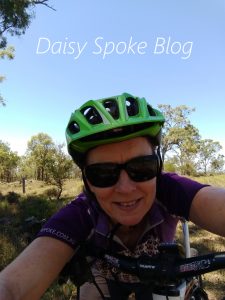 Daily exercise and general physical activity are crucial elements of feeling good. Just as some people might need to diligently take medication every day, I need to exercise every day. Exercise is nature’s way of stimulating the hormones which aid concentration, problem-solving, sleep, digestion, and mood. This daily dose of exercise rebalances our body’s systems resulting in wide-ranging benefits that no single medication can provide. The research is absolutely clear that regular medium to high intensity exercise can have a profound effect on health AND happiness.
Daily exercise and general physical activity are crucial elements of feeling good. Just as some people might need to diligently take medication every day, I need to exercise every day. Exercise is nature’s way of stimulating the hormones which aid concentration, problem-solving, sleep, digestion, and mood. This daily dose of exercise rebalances our body’s systems resulting in wide-ranging benefits that no single medication can provide. The research is absolutely clear that regular medium to high intensity exercise can have a profound effect on health AND happiness.
What types of physical activity and exercise do you prefer? I’ve always loved bushwalking, and in more recent years I’ve become really enthusiastic about mountain biking. I call mountain biking my ‘parallel universe’ because it not only provides me with a very regular dose of fun exercise, family time and social interaction, but I’ve also learned the most amazing life lessons from it including managing fears, growing resilience, and developing mindfulness.
2. Get sleep savvy

Sleep is vital for optimal brain function including mood management. Quality sleep restores the mind and body. It improves concentration, problem-solving, reaction time, capacity to think clearly, organise ourselves, plan, learn … and the list just goes on. But getting a good sleep is easier said than done for some of us. There are many skills to getting a good sleep and there are many things you can control when you understand how sleep works. So, the lesson here is to educate yourself about sleep – sleep cycles, circadian rhythms, body clocks, and sleep hygiene. The most common helpful strategies include exercise (especially in the morning), exposure to early morning light (this resets the body clock so you start to feel sleepy in the evening), reduce caffeine (especially in the afternoon) and learn relaxation and stress management skills. Another vital strategy here is to learn about AND practice mindfulness – every day (not just when you have trouble sleeping). Which leads straight into my 3rd tip!
3. Mind your mind
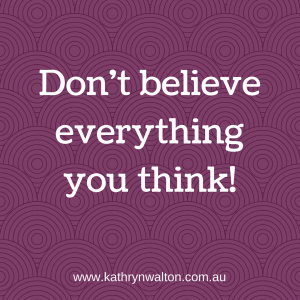 Minds are such complex things! They wield a lot of power over our emotions and our actions (including sleep). But unless you notice what’s going on in your mind, and choose how much power to give it, your thoughts, assumptions and beliefs will control you instead of the other way around. The habit of being hooked by thoughts or strongly attached to them is limiting and anxiety-provoking. The key here is to begin by simply noticing what is happening in your mind, and by doing this with curiosity and without judgement. The power is in the noticing. You’ll collect all sorts of interesting bits of information about how your mind works, what thinking patterns it gets locked into, what beliefs and assumptions are behind it all, and how all of this impacts your physiology, your behaviours and your emotions. One of my favourite sayings is “Don’t believe everything you think!” because we can learn to stand back, notice the thought and choose whether to believe it, or not.
Minds are such complex things! They wield a lot of power over our emotions and our actions (including sleep). But unless you notice what’s going on in your mind, and choose how much power to give it, your thoughts, assumptions and beliefs will control you instead of the other way around. The habit of being hooked by thoughts or strongly attached to them is limiting and anxiety-provoking. The key here is to begin by simply noticing what is happening in your mind, and by doing this with curiosity and without judgement. The power is in the noticing. You’ll collect all sorts of interesting bits of information about how your mind works, what thinking patterns it gets locked into, what beliefs and assumptions are behind it all, and how all of this impacts your physiology, your behaviours and your emotions. One of my favourite sayings is “Don’t believe everything you think!” because we can learn to stand back, notice the thought and choose whether to believe it, or not.
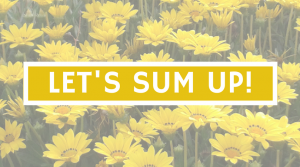
So there you have it. The 3 key pieces of information I wish I’d known (and understood, and implemented) when I was younger!
1. Exercise is the only magic pill
2. Get sleep savvy
3. Mind your mind
Discovering mountain biking as life’s ultimate parallel universe in her middle age, 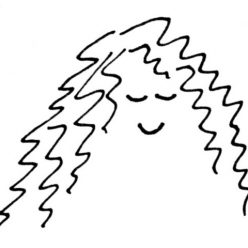 Kathryn Walton shares information and reflections in Daisy Spoke that connect, inspire and self-empower women to make healthy choices for themselves. She integrates her love of physical exercise, family, nature, gardening and creative arts with her professional background in mental health social work to facilitate change with individuals, groups and communities of women who are committed to living life to the full.
Kathryn Walton shares information and reflections in Daisy Spoke that connect, inspire and self-empower women to make healthy choices for themselves. She integrates her love of physical exercise, family, nature, gardening and creative arts with her professional background in mental health social work to facilitate change with individuals, groups and communities of women who are committed to living life to the full.
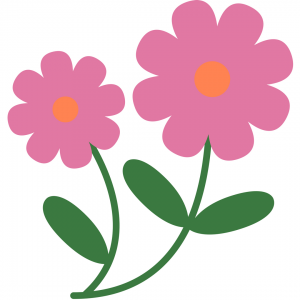 make the best ‘recipe’ for resilience and happiness – our world is full of distractions and quick-fix ideas. So, here I’d like to offer you some of the action-based ingredients that stand out through the ages and in all parts of world, and that are now backed up by rigorous research. In the next blog I’ll outline some of the very powerful mind-based strategies you can add to your mix to really step into your strength.
make the best ‘recipe’ for resilience and happiness – our world is full of distractions and quick-fix ideas. So, here I’d like to offer you some of the action-based ingredients that stand out through the ages and in all parts of world, and that are now backed up by rigorous research. In the next blog I’ll outline some of the very powerful mind-based strategies you can add to your mix to really step into your strength.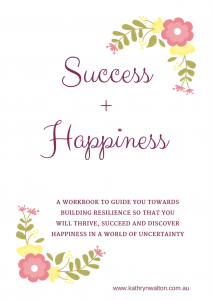 I have an EXCITING OFFER for you!
I have an EXCITING OFFER for you!